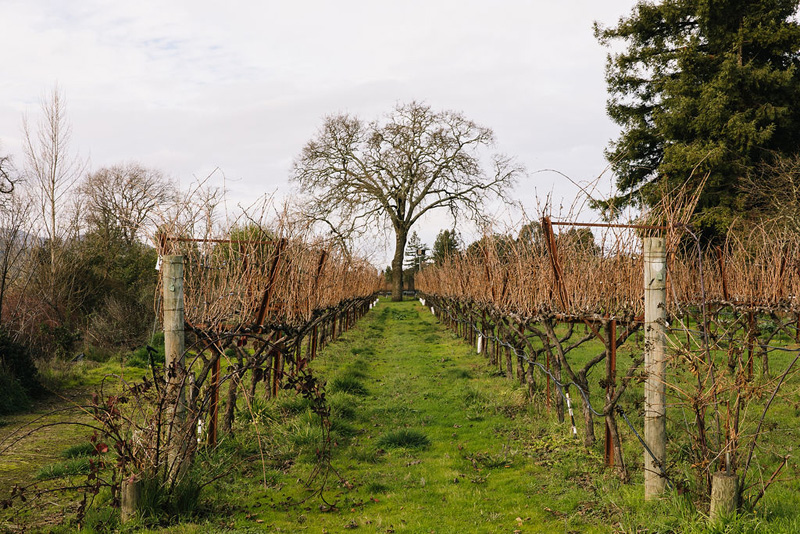The first thing you’ll notice when visiting Steve and Jill Matthiasson in Napa is that their vines are trained several inches higher than those of their neighbors.
“It’s so our harvest crew doesn’t have to bend down as far when they’re working,” Steve explained during a recent visit.
Though widely recognized for their decades of leadership on environmental issues, it’s the couple’s growing commitment to social sustainability that makes their work feel more relevant than ever — particularly now, as the industry looks for a sense of purpose that can’t be reduced to a numerical score.
Our conversation soon turned to the subject of harvest.

A former philosophy student with a healthy independent streak, Steve is largely immune to the groupthink tendencies that drive most industry norms. For example, his colleagues maintain that nighttime harvesting is a prerequisite for producing quality wine (the rationale being that cooler temperatures preserve the freshness of the grapes). Steve and his crew do it differently, never starting before daylight.
“Why kill ourselves?” asked Steve. “There’s a lot more to making wine than the six-week sprint of harvest.”
He went on to explain that the practice of harvesting at night was never intended for small producers. Rather, it was introduced by large industrial wineries hoping to avoid the hottest part of the day by starting in the middle of the night.

Yet, ultimately, Steve’s argument was an ethical one: wine quality shouldn’t come at a human cost. Think about it: for vineyard workers, the complications that arise from irregular harvest schedules can be incredibly disruptive, requiring last-minute rearrangements around everything from transportation to childcare.
As I spent more time with Steve and Jill, I became increasingly aware of a finely calibrated moral compass at the heart of every decision they make. Rather than accept wine’s quality-at-all-costs paradigm that often places aesthetic goals at odds with ethical ones, the Matthiassons are proving that social responsibility and wine excellence can, and should, go hand in hand.
Perhaps most radical of all is their employment policy: Matthiasson Wines is staffed almost exclusively by full-time, year-round employees — unheard of in an industry highly dependent on a robust migrant workforce. Maintaining a year-round staff requires flexibility and creative work-arounds — like their practice of rotating vineyard workers into winery roles. But the effort pays off, resulting in a culture of collaboration, deep engagement, and a shared sense of purpose.
Like many, I first learned about Matthiasson Wines in the pages of Jon Bonné’s 2013 book “New California Wine,” which traced the rise of a stylistic movement that positioned restraint and elegance as wine’s higher calling.

The movement was a game changer: it lit a fire under a new generation of producers and made “cool-climate Pinot Noir” a thing people actually said. However, by making it all about ripeness and alcohol, the movement failed to broaden the conversation from a debate about style to a deeper one about ethics.
This is exactly the conversation we need to be having now — and Steve and Jill, along with a new wave of mission-driven producers they’ve helped to inspire, are the best equipped to guide us.
Because here’s the thing: making Steve Matthiasson the face of New California Wine was like putting Bob Dylan on the cover of Acoustic Guitar magazine — it didn’t really get to the heart of what he’s all about.
Not to say that Matthiasson wines aren’t worth celebrating on the basis of deliciousness alone: their first bottle I tasted, the Napa Valley White, shot me like an arrow through the heart with its shimmery flavors of lime-tinged ricotta and acacia blossoms. Their Cabernet Sauvignon is also extraordinary.
But more than the wines themselves, it’s the Matthiassons’ ability to trace each stylistic decision back to an underlying ethical framework that makes their work so resonant and meaningful for me today.
Sam Decker is a sommelier, writer and co-founder of Wine + Peace, a new marketplace for responsibly made wine.

